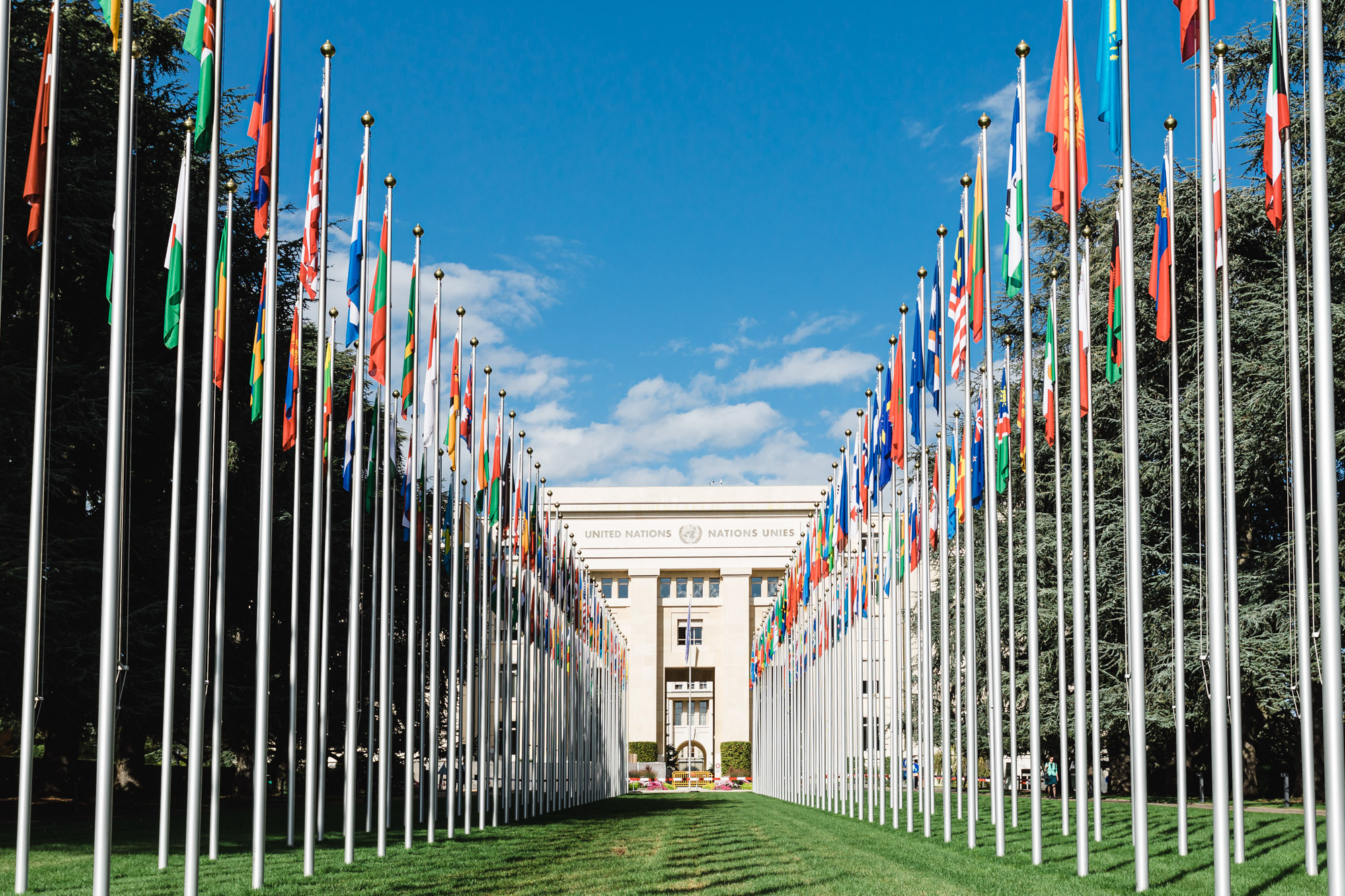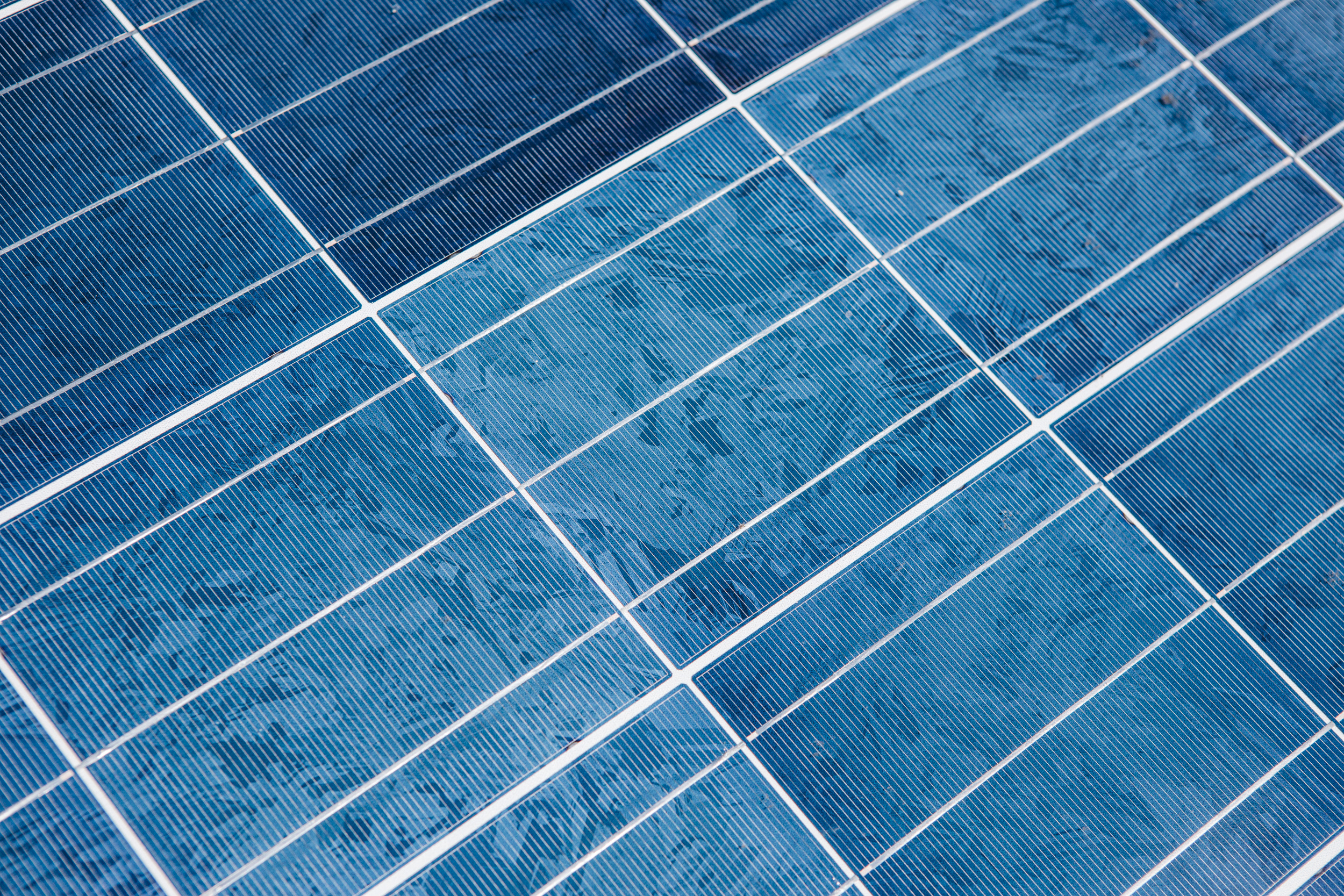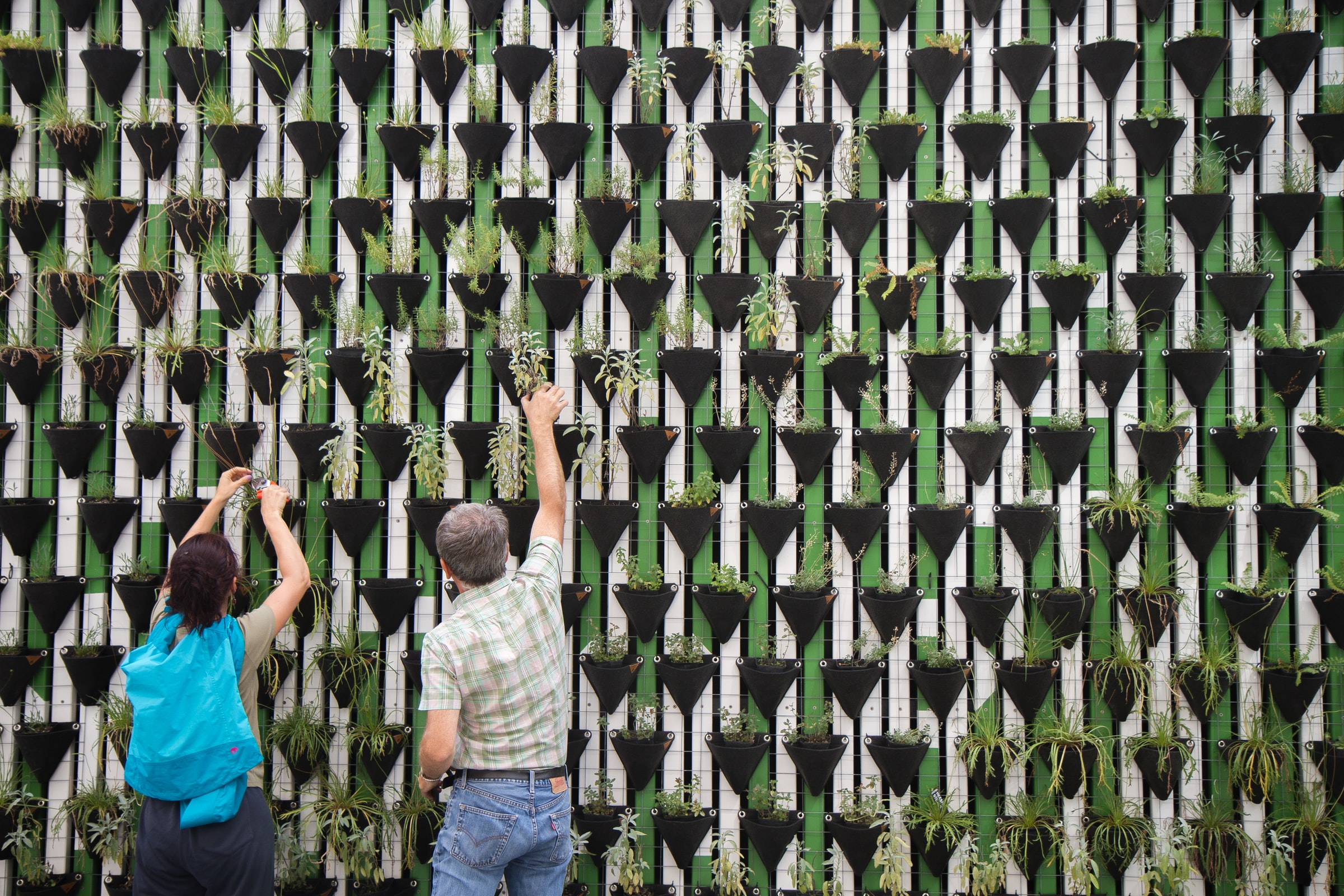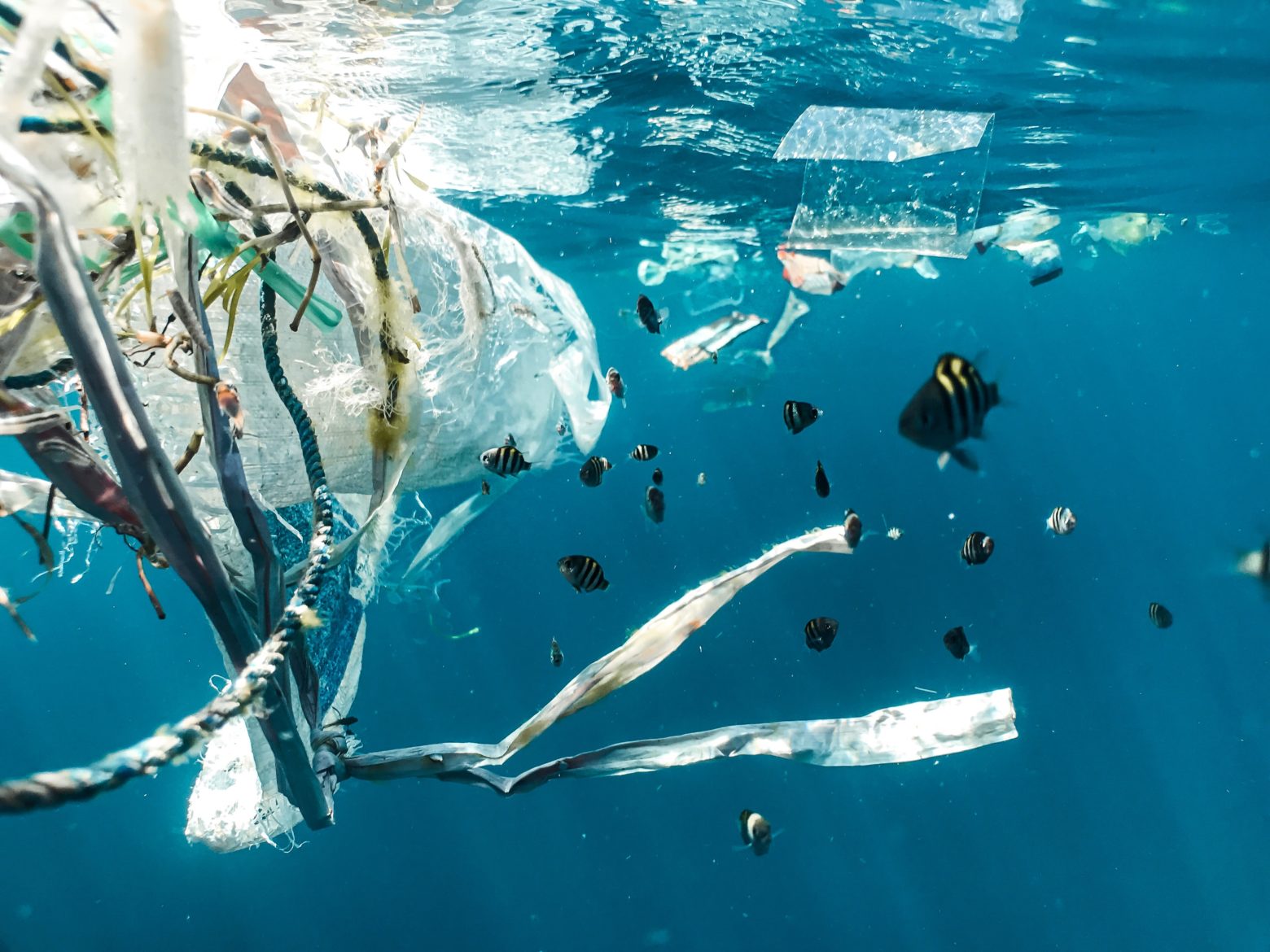Public call to action for a new global treaty on plastic pollution. The decarbonization imperative: transforming the global economy by 2050. Key indicators for the clean energy transition. Energy sufficiency: how to shape sustainable behaviours. Accelerating actions for leveraging a climate-neutral, sustainable society. Business Dialogue on climate change and human rights. Discover these and more online events of the week!
You can also subscribe to Climate Online’s newsletter to be reminded about weekly event updates by e-mail:

Biodiversity & Environment
14 December, 15:00 – 16:30 CET
“Resource mobilization and the post 2020 Global Biodiversity Framework: reflections from the Panel of Experts’ report” by Secretariat of the UN Convention on Biological Diversity
The aim of the webinar will be to present the updated and final report on the estimation of resources needed for implementing the post-2020 global biodiversity framework, taking into account the assessment of the amount of funds needed for the implementation of the Convention and its Protocols during the eighth replenishment period of the Trust Fund of the Global Environment Facility, prepared in accordance with decision 14/23. It will provide background information on the methodologies used for the estimates and position this report in the broader work of the expert panel. Register here.
16 December, 20:00 – 21:00 CET
“An Update from Carter Roberts, President & CEO, WWF-US” by World Wildlife Fund – WWF
Join for a very special edition of the Insiders Series featuring Carter Roberts, President and CEO of WWF-US. During the event, Carter will reflect on some of WWF’s conservation milestones this past year, look back at recent international meetings of the UN General Assembly and COP26, and explore how WWF will work with partners to achieve nature and climate commitments. Carter will also discuss some of the many ways WWF is working with governments, Indigenous peoples and local communities, and various public and private institutions to manage natural resources and address climate change.

Climate Science & Policy
13 December, 17:00 – 18:30 CET
“Business Dialogue on climate change and human rights” by International Organisation of Employers – IOE and Konrad Adenauer Stiftung – KAS
Experts from employers’ organisations, companies as well as international organisations will provide practical and relevant insights on the key developments and their implications in the debate and policy development of human rights linked to the environment. IOE will also provide an overview of the previous consultation and the main elements of the recently launched paper.
14 December, 13:00 – 14:00 CET
“Faith Communities After Glasgow: An Interfaith Examen of COP26” by Justice and Ecology Network Africa and UN Environment Programme – UNEP
The 2021 United Nations Climate Change Conference, also known as COP26, will end on 12 November. This historic meeting has been called the world’s “last best chance” to reduce carbon emissions and commit to a socially just plan for adaptation. Such a decisive summit merits close attention, and the focus of the world’s faith communities cannot be limited to advocacy alone…
14 December, 14:00 – 16:00 CET
“The State of the European Green Deal: end of year summary” by European Roundtable on Climate Change and Sustainable Transition – ERCST
This meeting is part of a continuous series organized by ERCST on the European Green Deal, which started on 8 January 2020 right after the European Commission’s EGD was announced. This work stream aims to bring together policymakers and stakeholders on a regular basis to take stock on recent developments in the EGD framework. This meeting aims to encourage a discussion on how climate policies impact the transition and its sustainability and how they influence energy policy offering an end of year summary.
14 December, 21:00 – 22:00 CET
“The Decarbonization Imperative: Transforming the Global Economy by 2050” by Stanford University
Time is of the essence. Climate change looms as a malignant force that will reshape our economy and society for generations to come, assert Michael Lenox and Rebecca Duff in their book “The Decarbonization Imperative: Transforming the Global Economy by 2050”. If we are going to avoid the worst effects of climate change, the authors attest, we are going to need to effectively “decarbonize” the global economy by 2050. The authors analyze precisely what this might look like for specific sectors of the world economy—ranging from agriculture to industrials and building, energy, and transportation—and examine the possible challenges and obstacles to introducing a paradigm shift in each one.
15 December, 9:00 – 11:00 CET
“Building Affordable Resilient Housing for Coastal Communities in Asia” by UN Environment Programme – UNEP and NDC Partnership
What does climate-resilience mean in the housing sector? Do we have sufficient knowledge and demonstration on the intersection between resilience and affordability when it comes to housing design? What lessons have we learned through raw material selection and architectural design to improve housing resilience to climate crisis? What are the key policies and regulations required to build the enabling environment to move climate resilient affordable housing investments from pilot to scaling up stage? What are some of the innovative and successful financing modalities which have shown positive results to help households, in particular in the informal market to access capital for new housing construction or retrofitting? Check event description here.
15 December, 10:00 – 11:00 CET or 16:00 – 17:00 CET
“LGMA COP26 Roadmap – Wrapping up COP26 and previewing COP27” by ICLEI
Yunus Arikan, ICLEI’s Global Advocacy Director, orients local and regional governments on the agenda and processes of the UN Climate Change Conference (COP26), held in November 2021 in Glasgow, as well as on issues of multilevel governance and progresses in the global climate negotiations. ICLEI acts as the focal point of the Local Governments and Municipal Authorities (LGMA) Constituency.
15 December, 10:30 – 12:00 CET
“Water in the State and Trends in Adaptation Report 2021: Africa” by Global Center on Adaptation
The “State and Trends in Adaptation 2021 Report: Africa” is first publication to bring together and integrate all different aspects of climate adaptation. It covers a wide range of issues, where water has emerged as a cross-cutting theme in most climate-related challenges. This webinar aims to bring forward the unique water perspective on adaptation for Africa. While many of the climate impacts are water related, adaptation presents many opportunities to leverage and highlight water issues to accelerate economic and human development.
15 December, 14:00 – 16:00 CET
“Paper launch: framework for the Carbon Border Carbon Adjustment (CBAM) policy tools” by European Roundtable on Climate Change and Sustainable Transition – ERCST
The European Green Deal has strengthened the level of climate ambition, increasing the asymmetry of climate efforts by aiming to achieve climate neutrality in the European Union by 2050. This raises the question of how to deal with competitive pressure and carbon leakage, also considering the COP26 outcomes and pushing Border Carbon Adjustments (BCAs) to the front as a possible unilateral solution. Since the beginning of the CBAM Project, ERCST presented the Sectoral CBAM Report with a deep dive into the specificities of individual sectors as well as issues and options of the general CBAM Design. Now ERCST Team will present the Framework for the Policy Tools and examine the Border Adjustment Mechanism in the plethora of Fit for 55 legislative measures.
15 December, 17:00 – 18:30 CET
“Building Back Better: The Economic and Jobs Benefits of Climate-Smart Investments” by World Resources Institute – WRI
The U.S. Senate is considering the Build Back Better Act that would invest billions of dollars to deploy clean energy, electrify transportation, build resilience to climate impacts, and decarbonize industry, creating millions of good jobs while improving the lives of all Americans. If enacted, together with the Infrastructure Investment and Jobs Act that was recently signed into law, the bill would be the largest piece of climate legislation in U.S. history and put the nation within striking distance of achieving its 2030 emissions reduction target. Join WRI for a conversation with Sen. Ron Wyden, chairman of the Senate Finance Committee and a senior member of the Energy and Natural Resources Committee.
16 December, 15:00 – 16:00 CET
“Leading customer on the transition to carbon-neutral housing” by The Economist
At COP26, climate experts stressed the importance of adopting sustainable practices to achieve carbon neutrality by 2030. Now, we must implement the most sustainable solutions possible. Santander and Economist Impact discuss how businesses can use their influence to lead towards a carbon-neutral future. Homes make up around 22% of carbon dioxide emissions in the UK. How can banks make it clear to customers which investments in carbon-neutral housing will deliver the greatest impact financially and environmentally? How should banks leverage internal data to persuade customers to adopt carbon-neutral practices? Finally, can customers afford the transition towards carbon-neutral housing, and what can be done to incentivise them?
16 December, 16:00 – 17:00 CET
“Cities & COP26 negotiations” by Geneva Cities Hub
Cities are among the largest sources of greenhouse gas emissions which contribute to climate change. Therefore, they have a key role in addressing this global challenge. Much depends on how they are planned, built and, use energy to enable people to live, move and thrive. As a result, many cities, local and regional governments (LRGs) and their networks have mobilized to contribute positively to the objectives of the Paris Agreements. The event will provide an opportunity to discuss and analyze the engagement of LRGs in a multilateral conference such as COP26: Have the LRGs and their networks managed to influence the negotiations? If so, how? How have LRGs interacted with States and other stakeholders? What’s in the final outcome (Glasgow Climate Pact) for LRGs? What about the follow-up to COP26 and LRGs’ action in that regard?
17 December, 15:00 – 16:30 CET
“Endogenous Abatement Technology” by RFF‐CMCC European Institute on Economics and the Environment – EIEE
During the event, speakers will first explore empirical evidence on i) the role the ETS carbon pricing system plays in emissions reduction at the Euro Zone level, and ii) fiscal and macro-financial drivers of green innovation. They use macro time series data from Euro Zone and US as well as panel data from the Euro Zone, receptively. They find that the ETS price plays a significant role in emissions reduction, as well as in steering green innovation. However, above a certain level, it negatively impacts green research and development (R&D), whereas long-term loans help boost green R&D…

Renewables & Energy Transition
13 – 17 December, 12:30 – 16:00 CET
“Just Transition Forum 2021: Energy and Jobs to Power the Future” by International Labour Organization – ILO, International Energy Agency – IEA, International Renewable Energy Agency – IRENA and UK COP26 Presidency
The energy sector powers economies and sustains jobs. For the Paris Agreement goals to be met, a total transformation of the energy system is required. What are the impacts to be expected? What needs to be done to harness the potential for sustainable job creation and economic growth? How can we deliver decent work and social justice in the energy transition? The Forum will host a high-level segment aimed at sharing insights from political leaders and heads of organizations on the most recent and relevant (inter-) national processes, strategies and experience in the field of a just energy transition. Technical experts will share their insights, research findings and experience in live discussions.
14 December, 10:00 – 11:30 CET
“Triggering Communities To Become Fit-For-55. Tackling Energy Poverty In East-Central Europe” by Buildings Performance Institute Europe – BPIE
Energy poverty is a widespread problem across Europe, as between 50 and 125 million people are unable to afford proper indoor thermal comfort. This webinar is the first of the ComAct series of three Knowledge Transfer Thematic Webinars at EU level and it aims to highlight the issue of energy poverty in Europe under the light of the fit-for-55 goal, which raises a huge challenge for many households in Europe.
14 December, 14:00 – 14:30 CET
“Benchmarking Scenario Comparisons: Key indicators for the clean energy transition” by International Renewable Energy Agency – IRENA
Long-term energy scenarios have become an essential tool for policy makers to guide the clean energy transition. However, the energy scenarios produced can vary and be complex, leading to an abundance of insights and technology combinations. Comparison studies have emerged to help understand the convergences and divergences between various scenarios, providing trade-offs for decision makers and identifying key insights for policy makers. This webinar will discuss the main findings from the recently-published collaborative report between IRENA and the European Commission’s Joint Research Centre “Benchmarking Scenario Comparisons: Key indicators for the clean energy transition“, which highlights the motivation, focus and methods of 14 scenario comparison studies, synthesizing experts’ views on how to improve such studies to gain insights for the clean energy transition.
15 December, 10:00 – 11:30 CET
“Energy sufficiency: how to shape sustainable behaviours” by Covenat of Mayors – Europe Office
Energy Efficiency is no longer enough to counteract the increasing energy demand. We shall drastically reduce our energy use if we want to ensure a fair and equal access to energy to all and meet the goals of the Paris Agreement. Energy Sufficiency means going beyond Energy Efficiency. It means using the enough amount of energy to fullfil our needs and keeping the energy waste net to zero. In this webinar you will learn how Energy Sufficiency can be implemented in the several sectors of our society, from mobility to digital infrastructure to social innovation.
15 December, 11:00 – 12:30 CET
“India’s Journey to 500 GW: Reaching the Capacity and Investment Targets” by International Energy Agency – IEA and CEEW Centre for Energy Finance
The webinar will present findings from the recently released IEA Renewables 2021 report with a focus on India and feature the launch of CEEW-CEF and IEA’s Clean Energy Investment Trends 2021 report. The Clean Energy Investment Trends report tracks project-level renewable energy market and financing trends to explain how the interaction of risks and regulations shapes investment flows. The presentation will be followed by a panel discussion examining the barriers in India’s journey towards its 500 GW renewables by 2030 target and key policy and market related enablers of investment flows.
16 December, 14:00 – 15:30 CET
“EU and public-backed investment platforms for energy efficiency” by Covenant of Mayors – Europe Office
Investment platforms backed by EU funds are investment facilities that typically pool smaller and higher-risk projects by geographic location or sector. This helps to share risk better, make it easier to attract private investors and eventually unlock financing for individual projects. This interactive event will introduce the EU-backed Investment Platforms addressing energy efficiency with an overview of active IPs in Europe. To dive deeper into concrete examples, an example of IP for urban investment will be presented. Secondly, it will give space to cities and municipalities to share their own experience and learn from each other.
16 December, 19:00 – 20:00 CET
“Battery Storage for Winter Grid Reliability: Lessons from Massachusetts, U.S.” by Clean Energy States Alliance – CESA
A new report finds that customer-sited battery storage is by far the lowest priced new winter peaking resource now available to Massachusetts utilities; that payments to customers enrolled in the Commonwealth’s ConnectedSolutions battery program should be increased by at least 33 percent; and that program budgets should be expanded significantly. The report’s authors will highlight these findings in the upcoming webinar.
16 December, 21:30 – 23:00 CET
“Heat pumps – International trends in buildings and industry” by Energy Efficiency Council
Heat pumps are a hot topic in Australia and overseas, and no wonder. Their high efficiency levels and the opportunity they offer to power heating loads with renewable energy are both important in the journey to net zero emissions. Europe has been leading the way in heat pumps in buildings, and the UK Government recently released its Heat and buildings strategy, which emphasises their role in decarbonising buildings. In Australia, the Low emissions technology statement 2021 has recognised heat pumps as a key technology for achieving Australia’s emissions reduction commitments. Join to get the low down on this trending topic from global experts.

Sustainability & Circular Economy
14 December, 9:00 – 11:30 CET
“Water Resilient Cities Learning Event: An Exchange on Different Water Resilience Approaches in African Cities” by World Resources Institute – WRI and South African Cities Network
To support cities in their efforts towards water resilience, the South African Cities Network (SACN) and the South African Local Government Association (SALGA), together with their partners, the GIZ‘s Natural Resources Stewardship Programme (NatuReS) and the USAID WASH-FIN Program, and joined this year by the World Resources Institute (WRI), bring this fourth (4th) installment of the Water Resilient Cities series of learning events. To end off 2021, the partners are bringing together different African city perspectives and experiences with water resilience approaches.
14 December, 17:00 – 18:00 CET or 15 December, 5:00 – 6:00 CET
“Public call to action: A new global treaty on plastic pollution” by Center for International Environmental Law – CIEL
More than 120 states have expressed support for a global treaty on the full lifecycle of plastics, and a number of business and industry voices have joined that chorus. The session will detail the asks of Member States governments for the upcoming UNEA5.2 session, and how the negotiation process for a treaty addressing the full life cycle of plastics can and should include participation from multiple stakeholders, including especially civil society, Indigenous Peoples, workers and trade unions, and children and youth.
15 December, 9:30 – 11:00 CET
“Launch of three Ministerial Statements on trade, environment and sustainable development” by World Trade Organization – WTO
This event is a launch of three separate Ministerial Statements of the Trade and Environmental Sustainability Structured Discussions (TESSD); the Informal Dialogue on Plastic Pollution and Environmentally Sustainable Plastics Trade (IDP); and Fossil Fuel Subsidy Reform (FFSR). Watch live stream of the event here.
15 December, 16:00 – 17:00 CET
“Marine litter: legal tools to address the crisis” by UN Environment Programme – UNEP
According to the last UNEP global assessment of marine litter and plastic pollution, without urgent action, the estimated 11 million metric tons of plastic currently entering the ocean annually will triple in the next twenty years. Considering this and other issues affecting the marine ecosystems, this session will address the impact of marine litter and microplastic pollution from an environmental justice perspective through a dialogue with judges and experts from the region. The session will bring to the table the relationship between human rights and the environment, the procedural and substantive obligations relating to the environment, and good practices in procedural and substantive environmental protection.
15 – 16 December, 10:00 – 13:00 CET
“Accelerating Actions for Leveraging a Climate-Neutral, Sustainable Society” by Institute for Global Environmental Strategies
The Leveraging a Climate-neutral Society – Strategic Research Network (LCS-RNet) will organise its 12th annual meeting, inviting prominent researchers including Prof. Jim Skea, Co-chair of the IPCC WGIII, as well as Prof. Derk Loorbach, who is renowned for research on transition management. This annual meeting will set “Accelerating Actions for Leveraging a Climate-Neutral, Sustainable Society” as an overarching theme, featuring sessions to discuss decarbonisation in industries, as well as employment, international cooperation and finance for leveraging climate neutral societies.
17 December, 10:30 – 12:45 CET
“Boosting the EU Circular Economy transition through collaboration” by Cross KIC Circular Economy Community
Since 2020 the European Innovation and Technology (EIT) Circular Economy Community has been engaging with civil society, EU and international stakeholders as well as the EIT network by supporting actions to strengthen and optimise the transition towards a more circular and innovative future. Join the webinar to find out more about our work on the ground and to hear the stories of involved actors working with us to increase the uptake of circular innovative solutions. Participants will get the opportunity to interact with the panel of experts and find out more about opportunities coming from the EIT Circular Economy Community programme.

